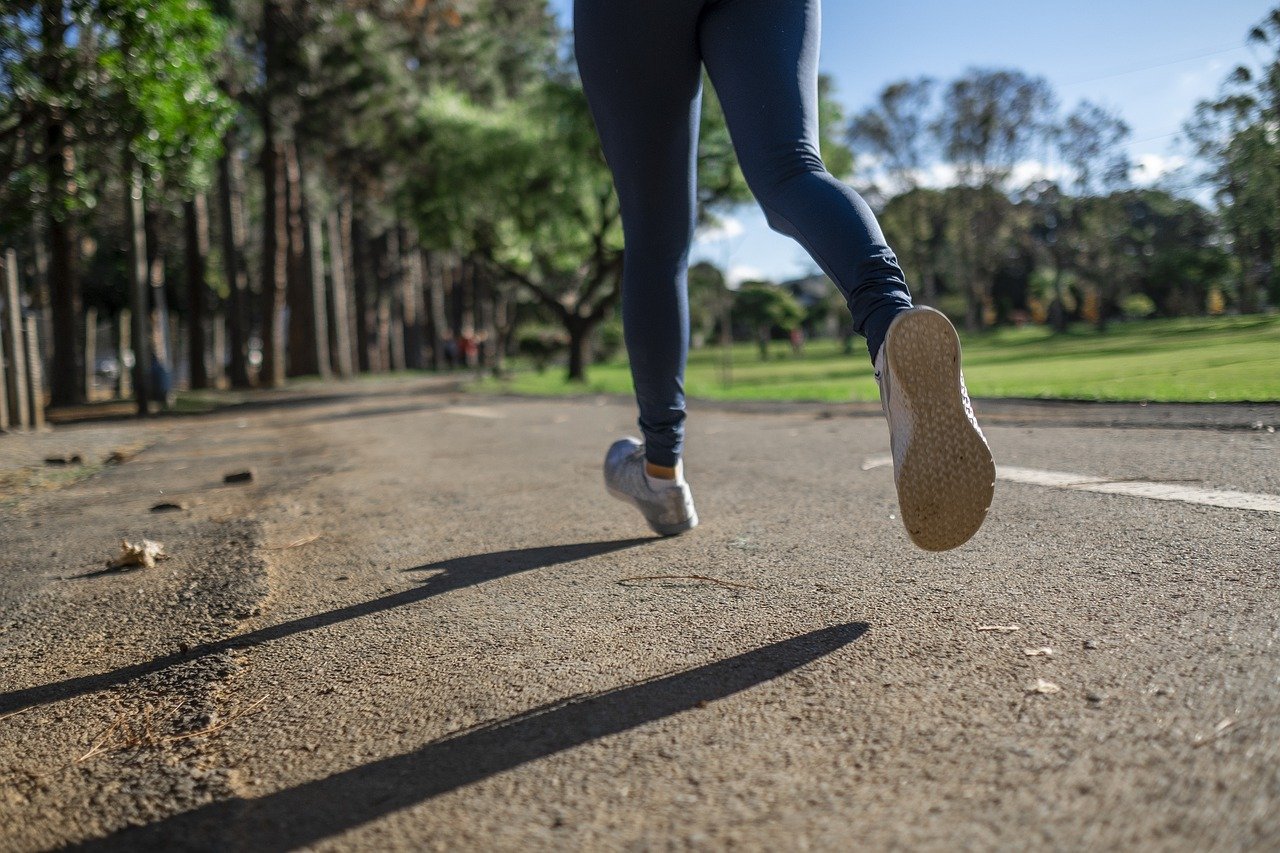There are a plethora of health apps on the market, but not one yet that can host both our basic health information and personal medical records.
Apple’s Health app that comes with the iPhone is pretty good as it counts your steps, walking and running distance, calories burned during a workout, hours of sleep, and heart rate (pair it with an Apple Watch), among other features.
You can also add in your own data like weight, body mass index (BMI), blood sugar, blood pressure, and symptoms etc.
I use the Nike Run Club app to track my runs and a period diary app to track my periods.
Besides tracking menstrual days, my period diary app also enables me to input data on when I had sexual intercourse, whether I used a condom, and even whether I had an orgasm! I can also use the app for daily notifications to take a contraceptive pill, or monthly notifications to do a breast self-exam.
Both my running and period diary apps are synced to Apple’s Health app that’s very sleek and user-friendly. The Health app contains my medical ID that states I’m an organ donor and lists my allergies and reactions to certain medications (easier to read than a doctor’s scribbles on my clinic card), besides my blood type. My medical ID can be viewed even when my iPhone is locked by tapping “emergency” and then, medical ID.
Apple’s Health app can even track your mobility and send notifications if you’re at an elevated risk of falling in the next year, besides sending notifications on unusually high or low heart rates detected by Apple Watch.
MySejahtera has the potential to be a useful health app for Malaysians – beyond Covid-19. The Ministry of Health (MOH) can either duplicate some features from Apple Health or Google Fit, or sync data from those apps plus wearables, with explicit users’ consent.
With a huge 38 million user database, it’s no surprise that MOH wants to use MySejahtera to monitor non-communicable diseases (NCDs), including cancer, or to host personal medical records on the app.
Real-time data on one’s blood sugar or blood pressure levels, as well as weight or BMI, would enable MOH to plan public policies and programmes for obesity, diabetes, and hypertension – specific to sub-districts and communities – as opposed to relying on outdated and less granular data from four-year NCD surveys. MySejahtera could also have a feature to input food intakes.
Malaysia has an NCD crisis, with nearly one of five adults reported to have diabetes and half of the adult population overweight or obese.
Data on one’s sexual activity and use, or non-use, of condoms or oral contraceptives would also enable MOH to target sexual and reproductive health education and promote safer sex to certain groups, especially teens and young adults.
MOH must expressly obtain MySejahtera users’ consent for each piece of health information shared on the app, including to sync to other health apps, besides guaranteeing in its privacy policy that personal data will not be shared with other government agencies, including law enforcement and state religious authorities.
As Health Minister Khairy Jamaluddin gears up to fight tobacco, with his proposed radical generation endgame to smoking, MySejahtera could also be used to track smoking habits in a bid to help smokers quit.
Although Apple’s Health app can track alcohol consumption, it doesn’t have a feature to track smoking or vaping activity.
MySejahtera can also be used to register organ donors, as Khairy previously suggested, or also to keep records of one’s blood donations, with reminder notifications for blood donors.
Without even getting into electronic health records (EHR) or electronic medical records (EMR) yet, real-time data on an individual’s overall health status and lifestyle, across the entire Malaysian population, could potentially revolutionise public health policies and programmes, especially for chronic disease.
An EHR is a patient-centred record, held by the patient, containing their medical history, diagnosis, laboratory and imaging investigations, allergies, immunisations, medications, and other treatments. An EMR, on the other hand, is a person’s health-related information that is created and managed within a health care organisation or institution.
“There are several barriers to adoption of EHR, although they are less in EMR. Privacy and confidentiality are among the major issues which have to be addressed before the introduction of EHR,” says former Malaysian Medical Association president Dr Milton Lum.
“MySejahtera is NOT suitable as an EHR. The primary reason is that there is NO public trust in MySejahtera – this is reflected in the marked decrease in usage since the controversies came to light last month. This occurred despite increased mobility since April 1.”
Serious doubts about the ownership of MySejahtera and the security of personal data collected by the app have yet to be fully assuaged by MOH officials, even as the ministry is still negotiating with MySJ Sdn Bhd, which received the app’s intellectual property and software licence for RM338.6 million from the app developer, Entomo Malaysia Sdn Bhd (formerly KPISoft), whose parent company is based in Singapore.
National data shows a 30 per cent drop in daily MySejahtera check-ins from March 25 to April 9, with declines across every state and federal territory expected to continue plummeting.
On the ground, not only are people avoiding scanning QR codes to enter stores or restaurants, more and more businesses in the Klang Valley are either no longer enforcing MySejahtera check-ins at their premises or have stopped displaying QR codes altogether.
Since the MySejahtera controversy broke last month, Khairy has proactively tried to address public concerns about the app, such as by initiating testimony at the Dewan Negara last March 31 before senators who threw him tough questions across the aisle.
He has also expressed willingness to attend the Public Accounts Committee’s (PAC) hearing tomorrow on MySejahtera. The PAC’s MySejahtera hearings ought to be made public, including all evidence tendered. It is undemocratic to apply secrecy laws to Parliament.
In his most recent public remarks on the issue, Khairy displayed humility as he again tried to reassure Malaysians about the security of their personal data and pleaded for continued public trust – a rare trait in ministers who are usually arrogant and defensive during major controversies.
If there was one mistake made by MOH officials in this MySejahtera saga, it was assuming that Malaysians would be okay with the government using their personal data in MySejahtera beyond the pandemic – without having to ask for their express consent.
As MySejahtera was never optional in the first place, Malaysians resent the idea of being “forced” to continue using an app that has been a visible symbol on our phone of the State’s control over our personal movements, with punishments for non-compliance.
Even before the pandemic, the government has had a record of carelessness with personal data. Federal and state governments are specifically exempted from application of the Personal Data Protection Act (PDPA) 2010.
Although I trust that Khairy will be able to safeguard public interest in his negotiations with MySJ and prevent commercialisation of MySejahtera – based on his track record of transparency with Covid-19 data and open and consultative management of an evolving pandemic – I fear that public trust in MySejahtera has been irreparably broken.
Rebranding MySejahtera may be necessary. MOH needs to change the perception of MySejahtera as a State weapon wielded against Malaysians into an app that’s actually useful in our everyday lives (not just for MOH’s research purposes).
Amending the PDPA to be applicable to the government may go some way in persuading Malaysians to host their personal health information on an MOH-owned app that would be legally secure, beyond the government’s verbal promises of protection.
Placing EHRs, including medical history, on the app would need additional legal measures of privacy and confidentiality — possibly specific legislation — so that the government can be held liable for any data security breaches that may harm patients.
The government should ensure that other service providers can maintain its “super” health app, not just MySJ that I personally distrust, with its shareholders suing each other amid MySJ’s ambitions to be a listed tech company, and company officials making public statements that contradict the company’s own documented agreements with shareholders.
MOH should also use personal data on its app in good faith. This means people should be rewarded for achieving certain health goals – perhaps with cheaper hospital or medical charges, or even lower taxes – not that people should be punished for being unhealthy.
Regardless of measures taken forward, once check-in mandates are lifted, people should have the freedom to delete MySejahtera if they wish, or to refuse to use the app for other health-related purposes beyond Covid-19.
I personally would like an app that syncs to all the data in my Apple Health app, besides storing records of my various vaccinations, blood donations, and results from my annual health screenings, plus app notifications for my next physical or pap smear.
My imagination of a super app that could help make me healthier can only be realised if the government can properly reassure us – with documents – about the security of our personal health information and proof of the government’s complete ownership of its health app. Legal frameworks must also be in place to protect users.
Public trust is key to public health.

Boo Su-Lyn is CodeBlue editor-in-chief. She is a libertarian, or classical liberal, who believes in minimal state intervention in the economy and socio-political issues.








